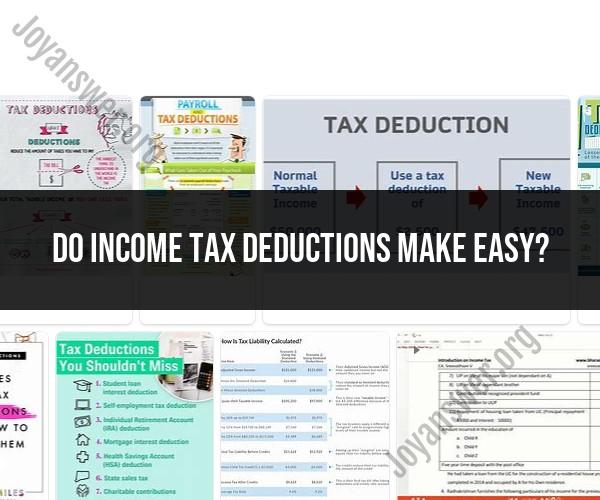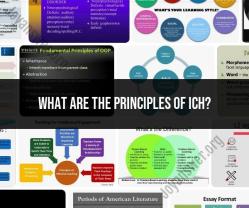Do income tax deductions make easy?
Income tax deductions can be complex, but breaking down the concepts into simpler terms can help individuals understand how deductions work and how they can benefit from them. Here's a simplified guide to income tax deductions:
1. What Are Deductions?Deductions are certain expenses that you can subtract from your total income, reducing the amount of income that is subject to taxation. This can lower your overall tax liability.
2. Standard Deduction vs. Itemized Deductions:
- Standard Deduction: A fixed amount that you can deduct from your income without needing to provide specific expense receipts. It's a simplified way to reduce your taxable income.
- Itemized Deductions: These are specific expenses you've incurred throughout the year, such as medical expenses, mortgage interest, charitable donations, and more. You can choose to use either the standard deduction or itemize your deductions—whichever results in a larger deduction.
3. Common Itemized Deductions:
- Medical Expenses: Costs related to medical and dental care that exceed a certain percentage of your income.
- Mortgage Interest: Interest paid on your mortgage loan for your primary residence.
- Charitable Donations: Contributions made to qualified charitable organizations.
- State and Local Taxes: Deductions for state income taxes paid and property taxes.
- Job-Related Expenses: Certain work-related expenses that are not reimbursed by your employer.
- Education Expenses: Some education-related expenses, such as student loan interest and tuition fees.
4. How Deductions Work:Deductions directly reduce your taxable income, which in turn lowers the amount of income subject to taxation. This can lead to a lower tax bill.
5. Keep Records:If you plan to itemize deductions, it's important to keep accurate records and receipts of your expenses throughout the year. This will help you substantiate your deductions during tax filing.
6. Consult a Tax Professional:While these concepts are simplified, individual tax situations can be complex. If you have specific questions or a unique financial situation, consider consulting a tax professional or using tax software to ensure accuracy.
7. Know the Latest Rules:Tax laws and regulations can change, so it's important to stay informed about the latest rules and guidelines related to deductions.
8. Utilize Resources:The IRS provides resources, publications, and online tools that can help you understand deductions better. They also offer guidance on eligible deductions and how to claim them.
Remember, everyone's tax situation is different, and the deductions you're eligible for can depend on various factors. While simplifying the concepts can make them more accessible, it's always a good idea to seek professional advice for accurate tax planning and preparation.











